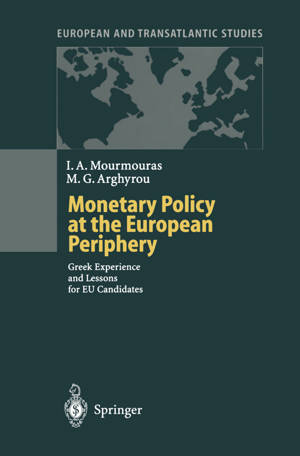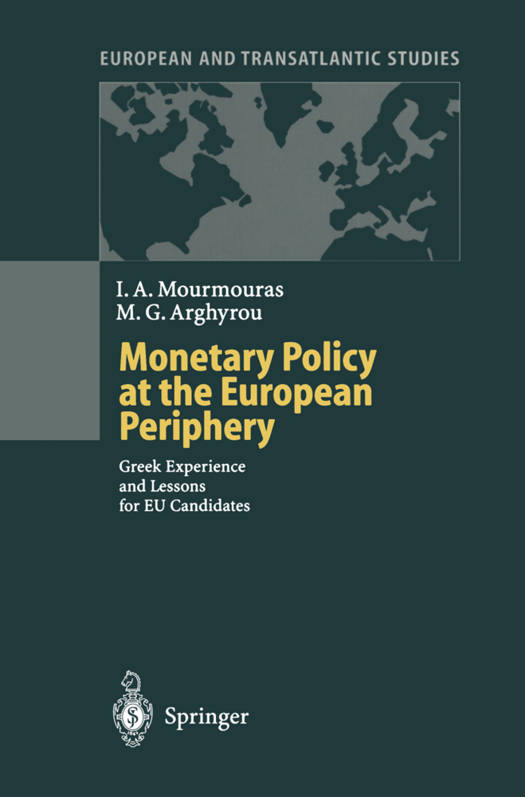
Door een staking bij bpost kan je online bestelling op dit moment iets langer onderweg zijn dan voorzien. Dringend iets nodig? Onze winkels ontvangen jou met open armen!
- Afhalen na 1 uur in een winkel met voorraad
- Gratis thuislevering in België vanaf € 30
- Ruim aanbod met 7 miljoen producten
Door een staking bij bpost kan je online bestelling op dit moment iets langer onderweg zijn dan voorzien. Dringend iets nodig? Onze winkels ontvangen jou met open armen!
- Afhalen na 1 uur in een winkel met voorraad
- Gratis thuislevering in België vanaf € 30
- Ruim aanbod met 7 miljoen producten
Zoeken
Monetary Policy at the European Periphery
Greek Experience and Lessons for EU Candidates
Iannis A Mourmouras, Michael G Arghyrou
€ 52,95
+ 105 punten
Omschrijving
At long last, monetary union has dawned in Europe. Eleven member states now share the common currency, forming a larger EMU than many observers, who thought that monetary union would initially be restricted to the core countries of the European Union, expected. The next item on the EMU agenda now is the question how to bring the remaining members of the European Union into the monetary union. I.A. Mourmouras and M. G. Arghyrou address this question from the perspective of Greece, and, with it, future European Union members such as Hungary and Poland. Their book presents a careful and interesting study of the Greek monetary policy experiences over the past 25 years. It demonstrates how Greece moved from an inflation- ridden economy characterized by rigid controls of the financial sector to an economy for which an independent central bank and inflation targeting are credible options. The study is not only interesting in itself but also in that it bears important lessons for the development of monetary policy and institutions in the candidate countries of the European Union.
Specificaties
Betrokkenen
- Auteur(s):
- Uitgeverij:
Inhoud
- Aantal bladzijden:
- 218
- Taal:
- Engels
- Reeks:
Eigenschappen
- Productcode (EAN):
- 9783642631184
- Verschijningsdatum:
- 3/10/2013
- Uitvoering:
- Paperback
- Formaat:
- Trade paperback (VS)
- Afmetingen:
- 156 mm x 234 mm
- Gewicht:
- 340 g

Alleen bij Standaard Boekhandel
+ 105 punten op je klantenkaart van Standaard Boekhandel
Beoordelingen
We publiceren alleen reviews die voldoen aan de voorwaarden voor reviews. Bekijk onze voorwaarden voor reviews.











